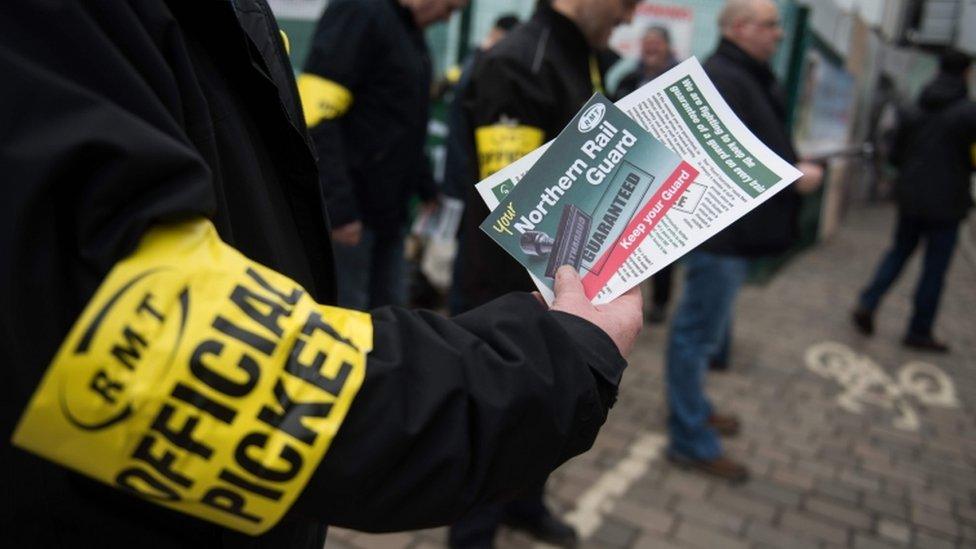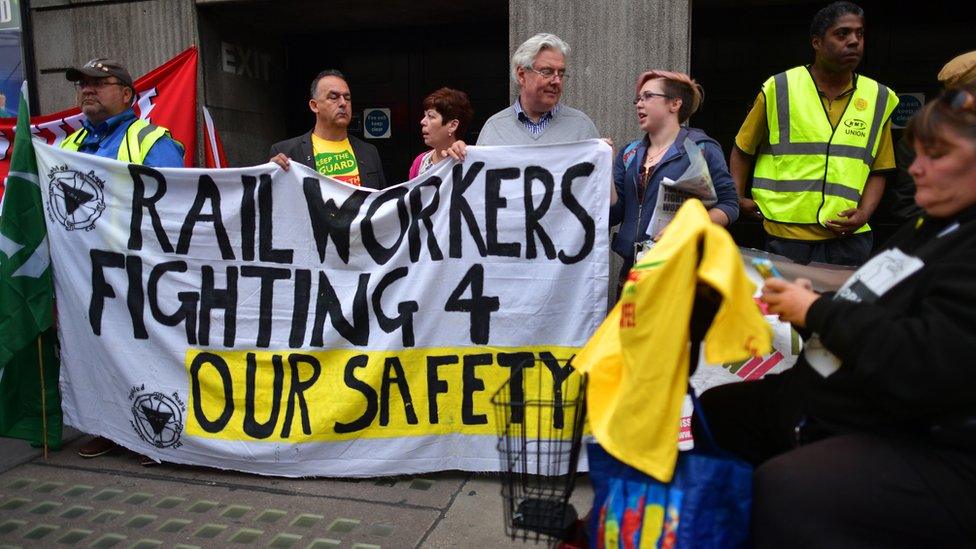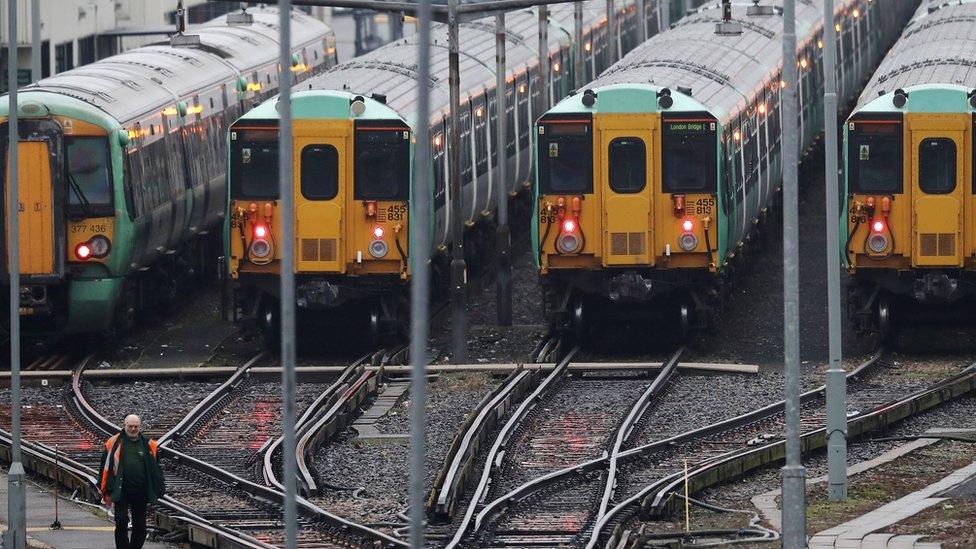Southern rail drivers announce new overtime ban
- Published

The bitter dispute has affected rail passengers for nearly a year
Passengers' brief respite from travel disruption on Southern railway is set to end at the end of this month as train drivers stage a new overtime ban.
Members of the Aslef union will refuse to work overtime from the end of May, immediately after the latest one-day strike by members of the RMT union.
Aslef says Southern has refused to budge in talks on the introduction of driver-only-operated trains.
The rail company says passengers will suffer just as services are improving.
The drivers' union announced the latest development in the year-long dispute after the most recent talks with Southern and its parent company Govia Thameslink Railway (GTR) broke down on Tuesday.

Members of the other main rail union, the RMT, are staging a one-day strike on 30 May
General secretary Mick Whelan said: "We have been talking to Southern to try to resolve the outstanding issues in a way which works for drivers, passengers and the company.
"Unfortunately, the company has refused to move its position."
'Intense negotiations'
The new action, following more than a month's worth of strikes in the past year over the role of train staff, has angered GTR.
Chief operating officer Nick Brown said: "After over five months of intense negotiations and two peace deals agreed and recommended by the Aslef executive, we are dismayed the union leadership is taking this action, which is designed to [have an] impact [on] as many of our passengers as possible.
"Driver-controlled operation with on-board supervisors was fully implemented back in January, and thanks to this we are running more trains than before and our service has improved for five consecutive months."
Mick Cash, whose RMT members are walking out for 24 hours on 30 May over renewed safety concerns, is calling for tripartite talks, describing the Aslef action as "a hugely significant development".
- Published16 May 2017

- Published15 May 2017

- Published24 April 2017
